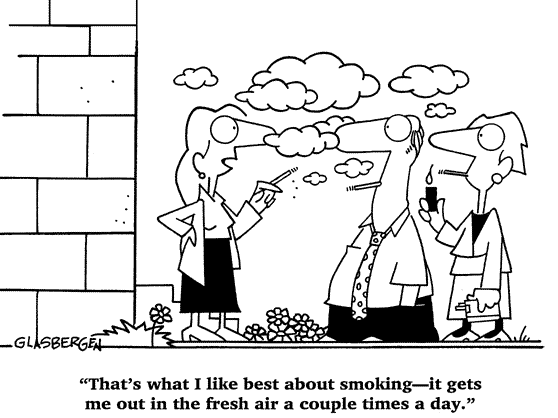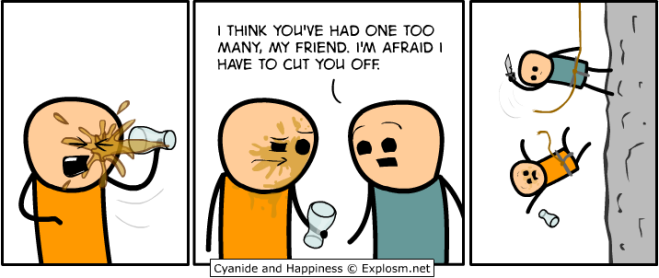Good morning world (or limited audience of this blog)!
Chocolate and alcohol update: Nothing for 18 days! I’ve been rather good and steadfastly ignored all temptation. However, next week I’m invited to two parties and I’m attending a hen party in a few weeks. So. That will be fun and sober.
I decided this week that a little trip was in order and did some Googling for suggestions. I was looking for Bavarian cities and villages, but I came across Domažlice instead.
From Regensburg – where I live currently – you can hop on a train a few times a day which goes from Munich to Prague. There are a few other stops on the way, and one of them is Domažlice. So on Saturday, a friend and I hopped on with a shared Bayern-Boheme ticket (€31 between us) and headed there.
Our journey there was kind of interesting. A group of guys on a Junggesellenabschied (read: stag do/bachelor party) also boarded the train and partway through the journey, there was a knock on our compartment door. Something I’ve seen several times on trains here is the bride or groom to be, forced to sell random (and often more risque) items to strangers on the train, in an effort to have more money to spend on fun once they get to their destination – at least as far as I understand it!
The groom-to-be (in a kilt) joined us in our compartment once he knew we were from the UK and US, to tell us about all the places he’d been. He and a couple of his friends kept us occupied until we reached Domažlice. We graciously bought a couple of tiny bottle shots to help him on his mission.
This is Domažlice:
Something we learned about the Czech Republic? Shops like to close by 12 on a Saturday. So, when we arrived, just past 12, the place was a ghost town. Coffee shops and restaurants were open, but the tourist information spot and most shops were done for the day!
The Czech Republic is not part of the Eurozone, so the official currency is the Czech koruna. However, Domažlice is pretty close to the German border and a few places accept Euro as an alternative payment. This is pretty handy if you just want a coffee whilst you’re seeking an ATM!
We had a nice coffee in a little cafe, before going for a wander. We popped into the Birth of the Virgin Mary Church. You can’t spend much time in here, as most of the church is closed off when mass isn’t being performed. However, it was really pretty inside with a beautiful altar. The church was originally founded in 1111 AD and rebuilt a number of times, particularly after many fires in the 18th century. It also sports a tower which used to be watch tower for Domažlice.
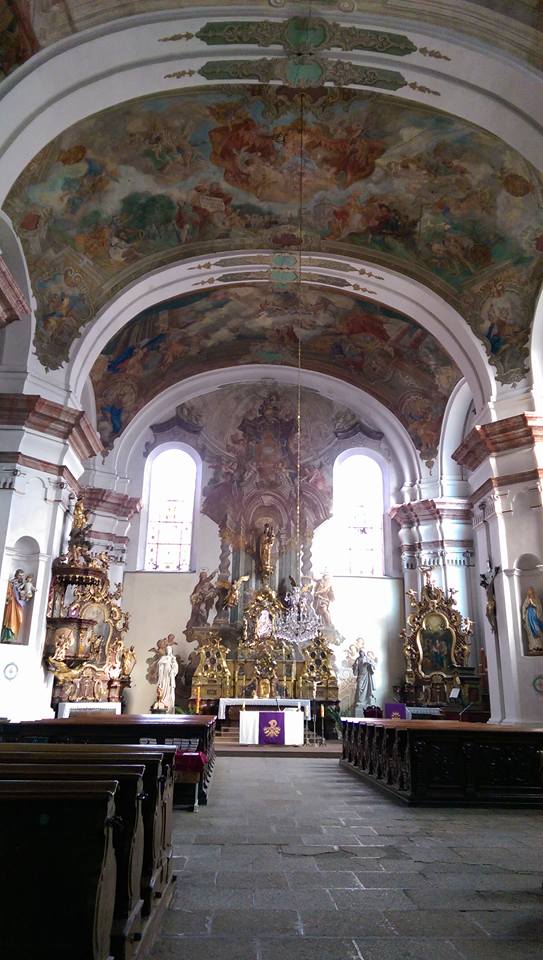
After the church, we headed down to Chodsky Hrad, or, Chod Castle (Chodsky is the old region name). The castle was originally built in the 1200s. It was part of the fortification of the city and served in its administration. When it lost this purpose, the castle fell into disrepair. Ultimately, Chodsky Hrad burned down in the 16th century, and the tower you see in the picture below is the only remaining part of it. The ‘new’ part of the castle was built in the 18th century and today serves as a museum.
When we first went in, it seemed as dead as the rest of the town. However, we eventually found a door that opened and one employee behind a desk. The museum isn’t spectacular, but it has some interesting exhibits, so it’s worth a visit. It has items of historical significance (arrow heads, cooking implements, etc.) from various excavations, as well as art, machinery and crafts. We also went up the tower (I hate spiral staircases) and had a nice view. (Citizens of Domažlice, be careful of how you sunbathe in your back gardens…).
When the museum closed, we strolled around for a while before choosing a restaurant/pub for dinner. The service was interesting. We quickly established that German was the best option for speaking, but the waitress repeatedly asked my (fluent) friend, ‘Sprechen Sie Deutsch?’ despite the fact that she was speaking in Deutsch. It got very confusing!
I ordered Schweinshaxe (don’t ask me what that is in Czech!) but I had hoped it was in sauce, so I ordered a Bohemian-style Dampfknödel to go with it. The dumpling did not show up and there wasn’t any sauce, so I ordered it again with a salad for a side dish. Note: Czech menus seem to be very specific. If it tells you how many grams your food will be, they mean it. And side dishes are not a given with a main, so make sure you double-check!
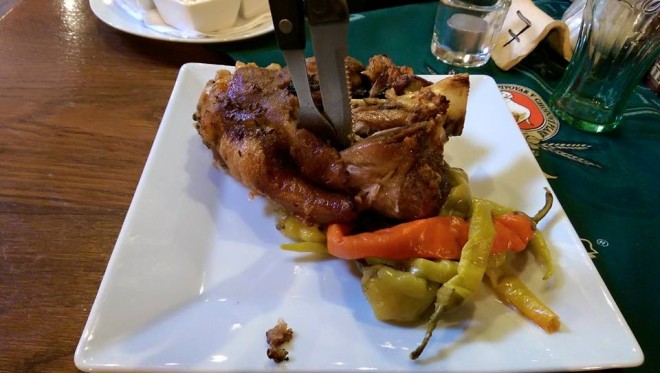
We also had a look around a little supermarket and picked up a few fun things we don’t see in Germany. Sadly, as I’m not eating chocolate, I didn’t pick up anything chocolatey. I did, however, pick up a bottle of honey mead and bunch of dried fruit, seeds and nuts (I buy these at home to perk up salads, but it was much cheaper in the Czech supermarket!).
The night started getting pretty cold and after a 20 minute walk, we really appreciated the heated waiting area at Domažlice station.
On the return journey, we had another interesting compartment visit. We were a little perturbed to see a couple of rather tough-looking men staring through the window at us. As the train was pretty empty, we didn’t really want to be joined by them! However, when they did open the door, one of them asked to see our identification cards. We realised then that they were carrying out border control checks.
It wasn’t really a big deal, but it was a little nerve-wracking to have ID demanded and to be questioned on our jobs, studies, what we bought in the Czech Republic and whether we were carrying drugs. They left pretty quickly.
I know that border checks are usually uncommon in Shengen countries these days, and as an EU citizen, I don’t need to worry when crossing borders. However, in certain areas where many refugees have been crossing into Germany, it’s become quite common. This particular area isn’t one of these routes so I didn’t expect anything.
The rest of the journey was uneventful!
Things I took away from this visit:
My first trip to the Czech Republic!
Many things are a lot cheaper there. Supermarket food isn’t a lot cheaper, but you can expect to pay a lot less for coffee, restaurant food, clothes, etc.
German came in very useful. It was refreshing not to always have English as the fallback language!
I should really check standard opening times for businesses in a new country!
It’s one place in which you can say ‘Ahoy!’ on dry land.
The summer will probably be a nicer time to visit – there’s a popular festival in August which we might swing by!
The Czechs have some fun with their road signs:
And there are amusing spelling errors in all countries. We were very immature and snicked over this one on a cocktail bar menu:
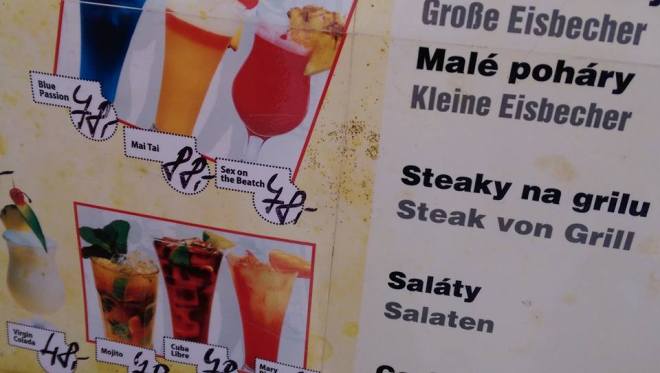
If you are interested in Domažlice’s history, there’s a short Wiki article here which is pretty interesting.
That’s all for now. Have a nice Sunday!








